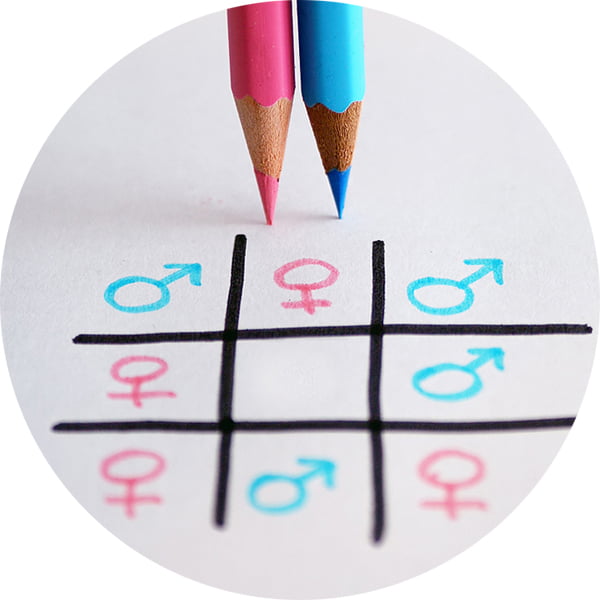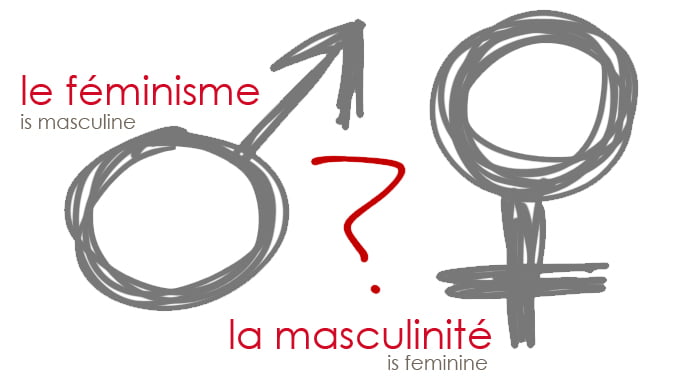La vs le: the French gender debate
Anyone learning French will have experienced that split-second of hesitation when making gender agreements. However, what is a mere headache for non-francophone speakers is a fierce source of debate that has spun out over decades in France.
While most people hold the notion that the French language is romantic and sexy, its use of masculine and feminine articles also makes it a sexist one in the eyes of many. The population is split by the question of gender-inclusive French words and the feminisation of professions.
Interestingly, this split isn’t straight along the gender line.
Add an ‘e’, change the world
Can the addition of an ‘e’ here and an ‘r’ there really be considered a call for semantic revolution? Having no such concept in English, us Anglophones can look on with amusement, fascination and relief that our own language does not spark such linguistic conflict.
The French are undoubtedly proud of the beauty and complexity of their language, derived from Latin and rooted in the creation of the Académie Française. Language, however, is a constantly evolving medium, which should arguably evolve with changes in society. While women represent a significant part of the workforce and occupy fields previously exclusive to men, many French masculine words relating to profession, function and title do not have a feminine equivalent.
“Can the addition of an ‘e’ here and an ‘r’ there really be considered a call for semantic revolution?”
So should grammar catch up with society? Or should centuries of linguistic history remain untouched?
Does French grammar have anything to do with gender?
Although French is a language that registers the genders of nouns, to a francophone these articles appear rather transparent. The gender article and agreements in French almost become a part of the word, and are therefore considered without gender-related overtones.
Despite this, it is hard to ignore that the names for certain high-level professions in French are notoriously male. With no neutral gender in French, the use of masculine default forms when referring to a professional woman is criticised as linguistic sexism at best, and at worst, as indicative of the preponderance of male domination in French and francophone societies.
French tradition versus modernisation
Pushes for job-title feminisation began to surface in 1981 with Female Rights Minister, Yvette Roudy’s reaction against a document addressed to her as ‘le ministre’: “Je n’ai pas changé sexe en devenant ministre!”
Since the Academie Française’s first terminology commission concerning professional women in 1984, the organisation has been adamantly against the prospect of job-title feminisation. As the official authority on the French language, it argues that its reasons for opposition are purely grammatical and practical. Complications arise over which female suffix to use: the addition of an ‘e’,‘trice’ or ‘euse’, and the existence of proposed feminised words such as ‘médcin’ or ‘médcine’.
Divided French feminists
For many feminists however, it is not a question of grammar, but sociolinguistics. The use of the masculine article underlines for them the inequality of women even today in the workplace.
What makes this linguistic debate particularly fascinating is that there are also many feminists arguing against the feminisation of masculine forms.
According to many grammarians and feminists, a more effective way of fighting against gender inequality is to consider job titles as collective and neutral.
« Je n’ai pas changé sexe en devenant ministre ! » – Yvette Roudy
Many women feel that using a separate feminine word devalues their position and is derogatory rather than empowering. Terms such as ‘directrice’ and ‘traductrice’, for example, may nuance a meaning and sound almost like the female assistant of the ‘directeur’ or ‘traducteur’. Making the effort to create new separate feminine forms arguably puts too much emphasis on gender and is actually divisive.
If a man and woman hold the same job, are two different words really necessary? We want your opinions! Share in the comments box below.
Top image via the University Observer.








Many French people are even unsure of gender sometimes! I have also on one occasion witnessed a French person say they didn’t know the rules on how to work out gender (doable for 99% of words). If only it were that natural for me… *sigh
That’s reassuring Esme! I wish the same thing!
After 30 years in France I still make LOTS of gender mistakes. Which is as much a tribute to my linguistic laziness and laxity as the complexities of French (which at least doesn’t have neuters). Once in a while there’s a proposal to simplify the language – and make French class easier for students, so they can concentrate more on math and science and compete better against the Germans, Italians and Spanish, with their WYSIWYG languages. The first thing they propose is to dump the circumflex accent, which has no effect on pronunciation and only serves to make dictations harder. I am vehemently against this, because it would undermine the inexplicable beauty of the French tongue. When you love a language it’s the little irrational details that make it most lovable.
That is again very reassuring to hear! I could not agree with you more David – the complexity of French makes it all the more beautiful and spurs me to work even harder at perfecting it!
Selina, you mentioned the masculine bias in ‘top level jobs’. I have always wondered why avocat/avocate did not seem to follow along this line. There’s a clear feminine word for a female lawyer – ‘avocate’. I don’t want to think it’s simply another jibe at lawyers [?].
Gerard
That’s an interesting point Gerard. Whereas many feminine forms of jobs do exist, any French women prefer using the masculine form – écrivain and écrivaine for example. This may be the same for avocat(e). The debate never ceases to intrigue me!
Many female-related words are masculine such as lipstick (un rouge a levres), handbag (un sac a main), breast (un sein), and many others. If you speak good enough French, catch this sketch about word gender by comedian Roland Magdane: http://www.youtube.com/watch?v=xSQo9-8HCyY. Hilarious.
Another good point Jennifer! I have actually lived in France for a year, so I understood the clip perfectly. Very clever sketch – especially the ‘Dès que c’est une galère c’est toute suite au féminin ‘ comment!